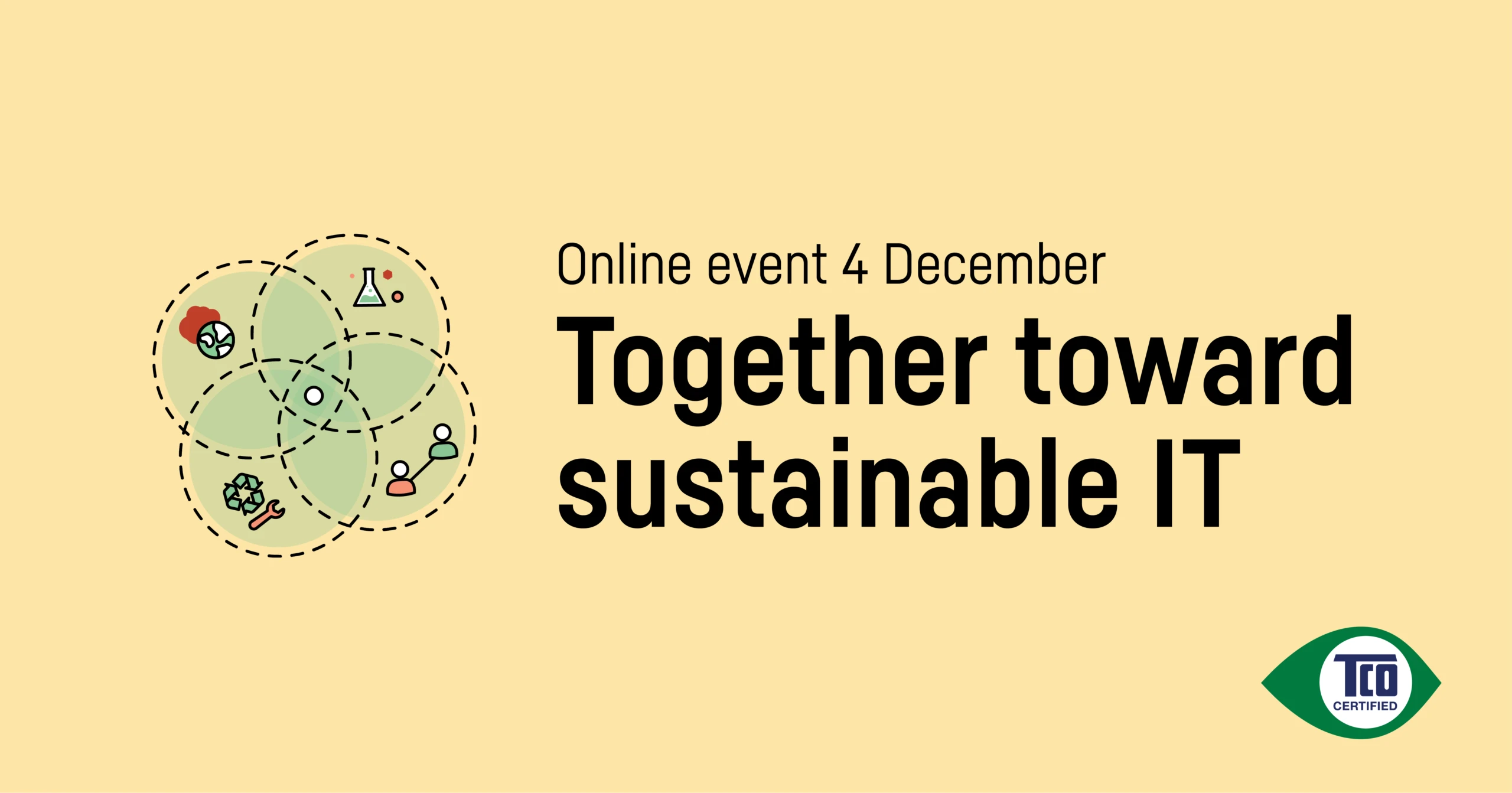Procurement is no longer simply “buying equipment”. Strategic procurement has the power to impact core business and contribute to the organization’s sustainability targets. The question is how to do this in a credible way, with verified outcomes. I spoke to Clare Hobby our Global Director of Purchaser Engagement, to get her insights from sustainable IT procurement.
How would you characterize IT procurement right now?

Clare Hobby
Director Purchaser Engagement, Global
We’re seeing a shift to procurement being used as a tool to drive sustainability and mitigate operational and reputational risks. It’s a shift to a category management approach, where life cycle, sustainability, and social impacts are at the fore. Procurement is moving from an administrative function to a strategic one, adding issues like ethical supply chains and environmental impact to traditional price and performance aspects. The big challenge is how to get proof that their purchasing decisions do not contribute to labor law violations or excessive climate impacts.
What are the top risks connected to IT hardware that purchasers face today?
It comes down to knowing what you get. When it comes to sustainability, greenwashing and bluewashing are real. While performance is relatively easy to assess, sustainability isn’t. Sustainability is no longer a “nice to have” feature. It’s both core business and competitive advantage. So, just like transparency and accuracy in other core business aspects like financials, we need to demand the same rigor in verifying sustainability. Stakeholders are watching closely – customers, employees, investors, media, NGOs. Environmental and social concerns are now embedded in every purchase.
Greenwashing and Bluewashing – what’s the difference?
Greenwashing is the practice of issuing false or unverified claims connected to the environmental aspects of a product, but the lesser known “bluewash” refers to making unverified claims about what’s happening around social issues – supply chain working conditions, social responsibility for example.
How can procurement get verification right without having expert resources in-house?
Firstly, don’t expect to know everything yourself, but know what to ask! Start by getting clear on the risks connected to the product you’re sourcing. This can help you set good sustainability targets for your organization. Then signal to your vendors that these issues are important and that you’ll require independent verification and set clear sustainability goals and procurement policy.
Next, choose reputable product certifications or ecolabels to embed in your procurement. Always make sure that verification is mandatory and independent. Ask for independent documented proof of compliance. If this is not available, using that ecolabel puts your organization at a higher risk for greenwashing and bluewashing.
Why are greenwashing and bluewashing so common with IT?
Because it’s a really challenging category to get our heads around. We can’t overstate the complexity of both the products themselves, the hundreds of components and processes that go into every device. Verifying the sustainability of all this is way beyond the resources and capability of most purchasers, and frankly, even some widely used ecolabels. Verification is incredibly hard work – that is why greenwashing and bluewashing are so widespread. But it’s exactly this verification that has the impact to reduce the risk while building credibility for procurement and the IT industry alike.
Can the use of a sustainability certification really impact the supply chain?
Absolutely. But there are some critical success factors that must be in place for a certification to have its desired impact: independent verification, correction of non-conformities, ongoing monitoring, accountability, and consequences for non-compliance to mention a few.

Gabriella Mellstrand is the Global Marketing & Communications Director at TCO Development. She has a lifelong interest in sustainability and the environment. Gabriella is also a foodie, running a social media account where she shares a lot of tips on local restaurants and different dishes.






